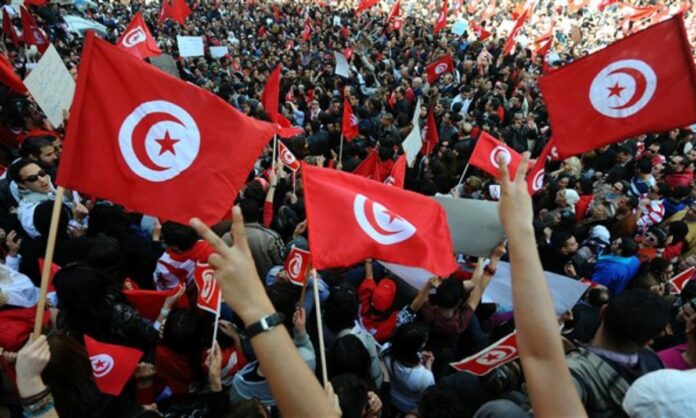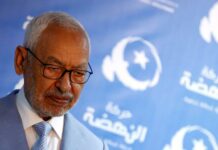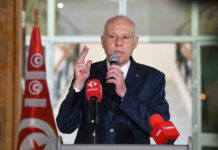Ten years after the revolution that triggered the Arab spring, Tunisia, long regarded as one of the few democratic transition success stories to come out of that era, has been plunged into crisis after its president, Kais Saied, suspended parliament and lifted the immunity of politicians for 30 days, citing a provision in Tunisia’s 2014 post-revolution constitution;This is how Peter Beaumont ,journalist in the British newspaper “the guardian” began its article “What is going on in Tunisia? All you need to know”
According to “the Guardian”,the crisis is the culmination of two converging sets of events, one more recent and the other more long-lasting.
Beaumont said that since his election in a landslide in 2019, Saied, a dour law professor and social conservative who campaigned as an outsider, has been locked in a struggle with Tunisia’s parliament – with the Ennahda party prominent within it – over the country’s post–revolution separation of powers.
- Are the events in Tunisia similar to the toppling of the Muslim Brotherhood in Egypt in 2013?
Beaumont explained that “while it looks similar at first glance, a lot of factors are very different.”
He added that with a base far less organised than those of parties such as Ennahda and Nidaa Tounis, he would need to rely on the army and police to enforce a coup, and their position remains unclear.
The nature of the competition is also more complicated. Rather than a straight struggle between a secular figure backed by the military and an Islamist movement, Saied and Ennahda are in competition for the same supporters, not least young rural social conservatives.
- How does Saied see democracy ?
According to the same source ,Saied campaigned in 2019 against corruption and in favour of a complicated form of direct democracy at the local level, which critics saw as intended to bypass the current arrangements for the election of MPs. He has also campaigned to allow voters to recall politicians accused of financial or “moral” corruption.He gained prominence as an academic legal expert on the country’s constitution, but most outside observers see his invocation of article 80, which allows the suspension of parliament in extraordinary circumstances, as flawed because he failed to consult parliament and its speaker, Rachid Ghannouchi, Ennahda’s most prominent leader.
- What’s next?
The Guardian talked about the role that can be played by Tunisia’s civil society – including organisations such as the influential UGTT national trade union – is better developed and expected to play a role in any dialogue in the coming weeks.
“Another key test will be if Saied appoints a prime minister, and if so whom, and how widely that move is supported.”











